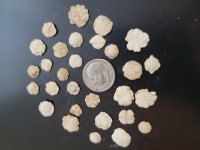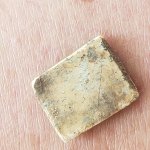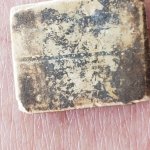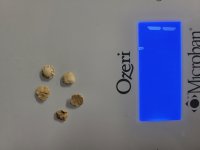ken135
Full Member
- Sep 24, 2017
- 206
- 322
- Detector(s) used
- F75LTD, G2+, Tesoro Mojave & Bandido 2 micro-max, Deep Tech GG & X
- Primary Interest:
- Other
I have found these over the last 4 yrs while metal detecting an old 1860's fairground site in Indiana. I know they are small flattened lead pieces but have no idea why they were made.
My first thought was they were small checker pieces for kids to play with, being a fairground site....a little something for the kids.

Thanks for taking a look.
My first thought was they were small checker pieces for kids to play with, being a fairground site....a little something for the kids.

Thanks for taking a look.









